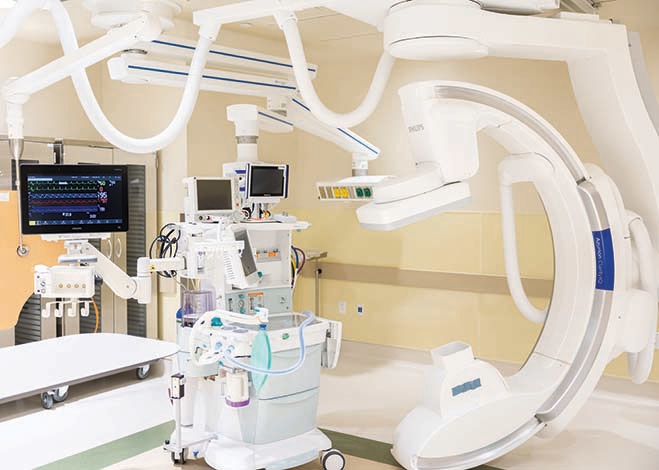Hyperthyroidism vs. Hypothyroidism: Effects & Treatment
Feb 4, 2022

Your thyroid helps your body make energy - here’s how it can go wrong.
When you eat, your body undergoes chemical reactions to convert food into energy, a process called metabolism. Your thyroid, a small gland in your throat, regulates your metabolism by releasing hormones so you have just the right amount of energy. But when your thyroid releases too many or too few hormones, your whole body can be affected. These thyroid hormone imbalances are known as hyperthyroidism and hypothyroidism.
Hyperthyroidism
An overactive thyroid, known as hyperthyroidism, occurs when the thyroid makes more hormones than your body needs to effectively convert food into energy. This can be caused by an immune disorder, inflammation, noncancerous growths or too much iodine from food, supplements or medication.
How it affects the body: Symptoms include fatigue, weakness, mood swings, irritability, weight loss, trouble sleeping and difficulty tolerating heat.
How it is treated: If you are diagnosed with hyperthyroidism, talk to your provider about treatment, which may include medication, radiation treatment or partial removal of the thyroid.
Hypothyroidism
When your thyroid is underactive, also called hypothyroidism, it doesn’t make enough thyroid hormones, so your body isn’t getting sufficient energy. This can be the result of an immune disorder, inflammation or medication, or it could occur after radiation treatment or removal of the thyroid because of hyperthyroidism.
How it affects the body: Symptoms include fatigue, weight gain, puffiness or swelling in the face or neck, a slowed heart rate, dry skin or hair, joint and muscle pain, depression and trouble tolerating cold. Women may also experience irregular menstrual cycles or fertility issues.
How it is treated: Your provider may prescribe medication that replaces the hormones your thyroid is not successfully making.
Keep your metabolism on track
If you are experiencing symptoms that indicate an overactive or underactive thyroid, talk to your provider about getting tested. Call 530-872-2000 to schedule an appointment with a primary care provider.


